Greg Murphy/WCS
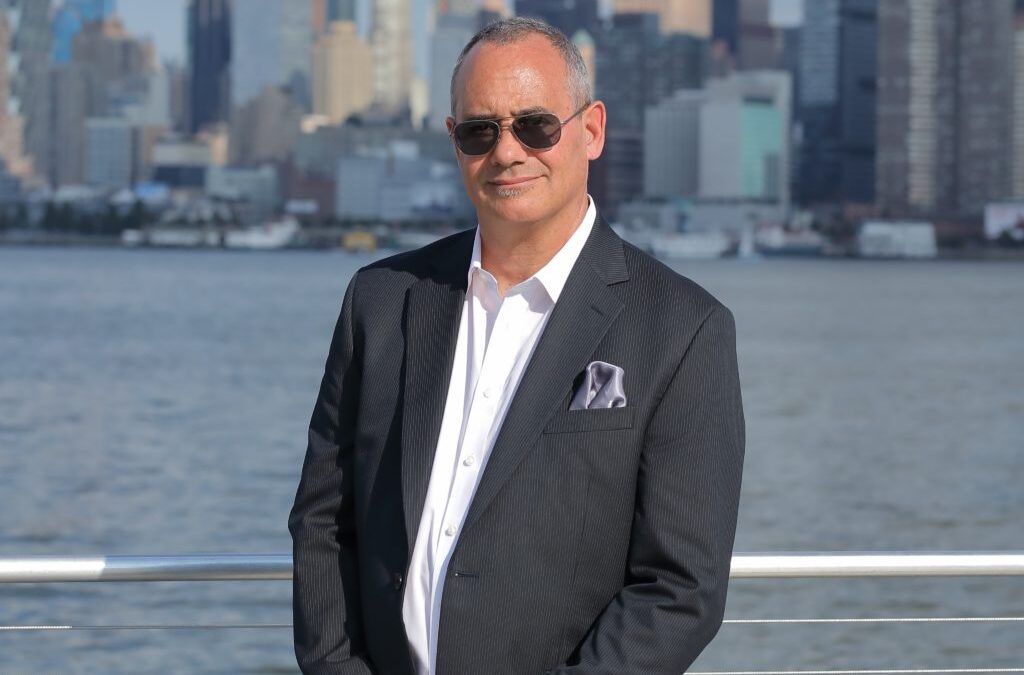
Snap Happy available now!
LABEL: Whaling City Sound
Publicity: All About Jazz, JazzSquare, Jazzwise, The Doodlin’ Lounge, Urban Scene, What’s Up Newp, New York City Jazz Record,Neon Jazz, WDCB, Midwest Book Review, Full Circle on JazzFM (UK), Jazz Weekly, Making A Scene Magazine,Wicked Local Cambridge, City Pleasures, Facts on Wax, Midwest Record, Jazz News, The New York City Jazz Record, O’s Place Jazz Newsletter, Jazz Pensacola, Our Man on the Coast, Mid West Record, Night Journey Rewind
Mixed Media Client since: 2016
Back to Clients
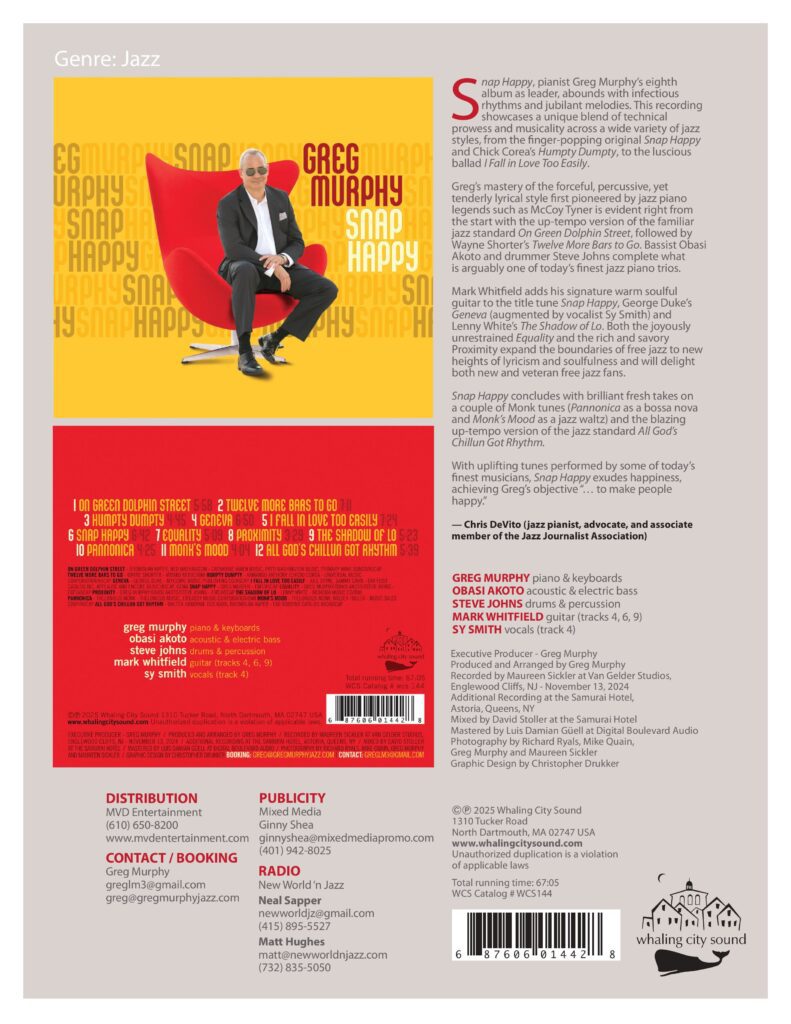
Click here to read the full review

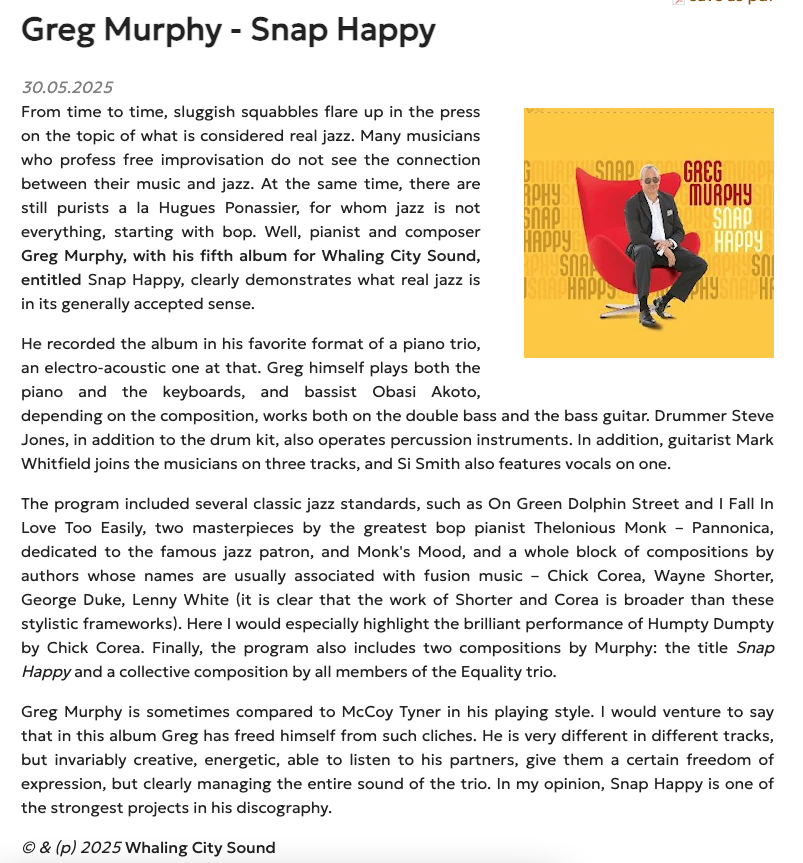
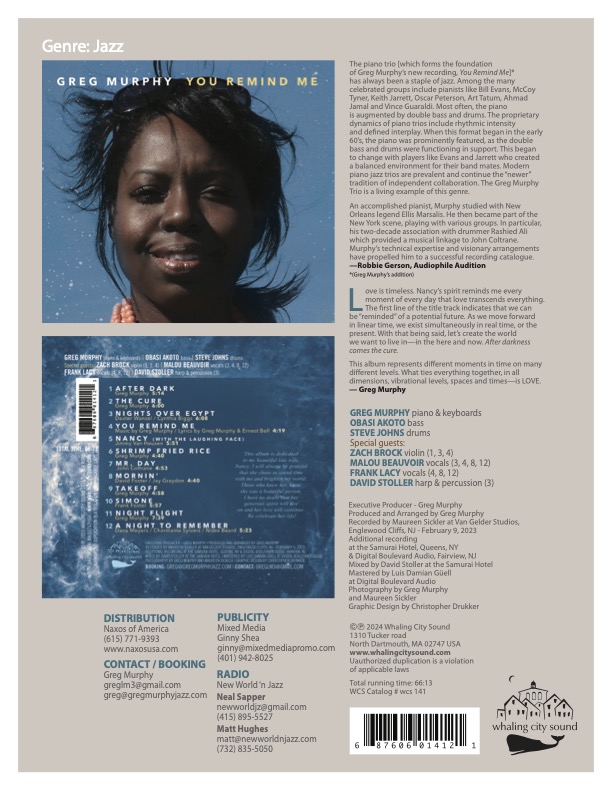
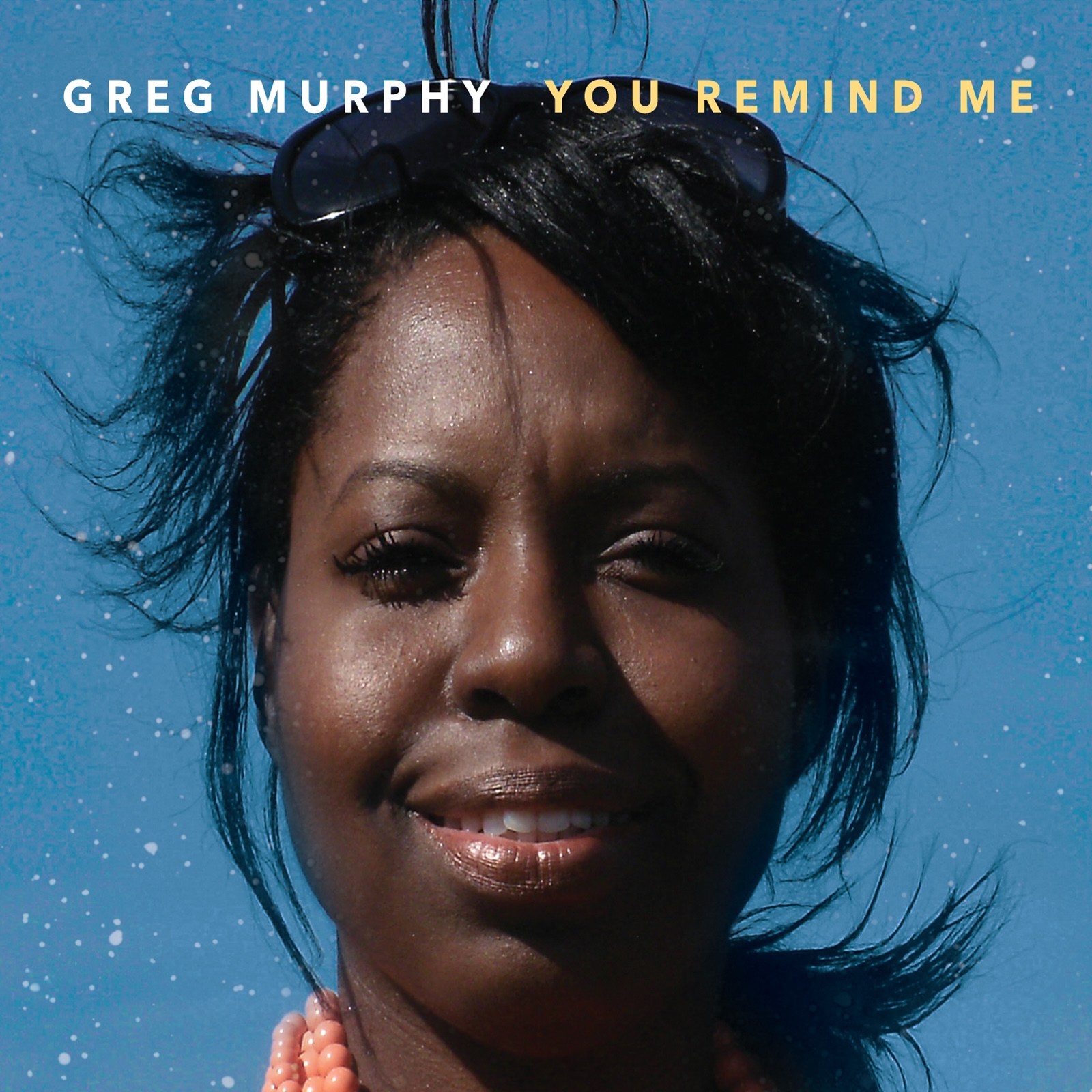
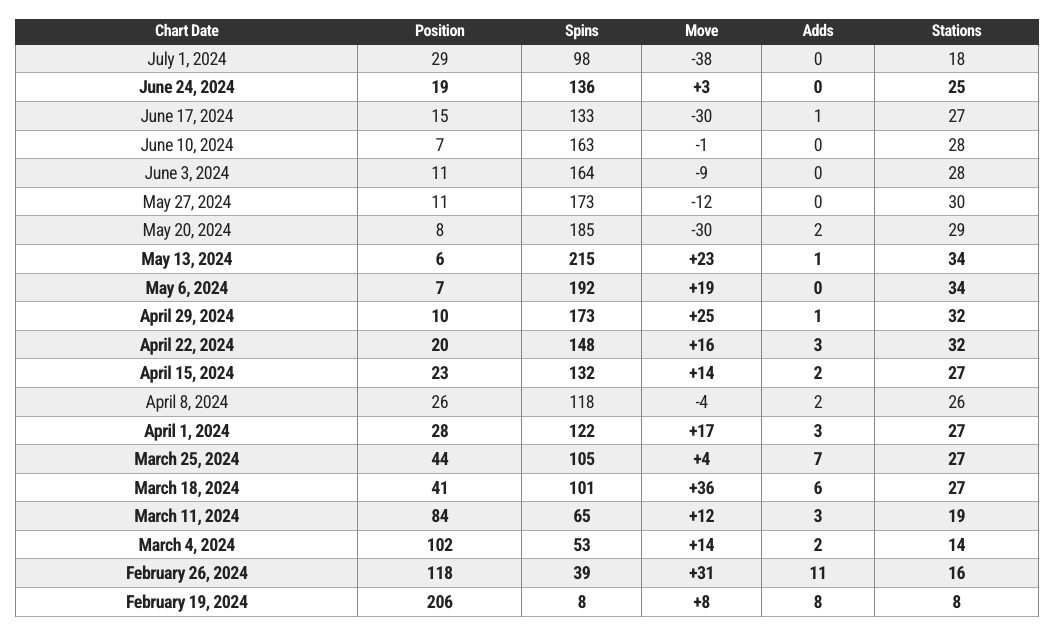
Click here to read the full review
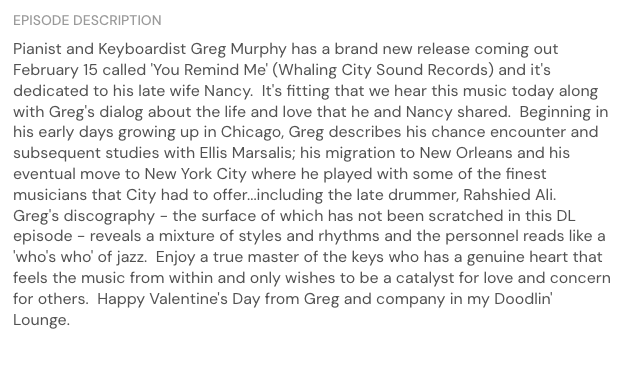
The podcast will also air on KCSM on Valentine’s Day

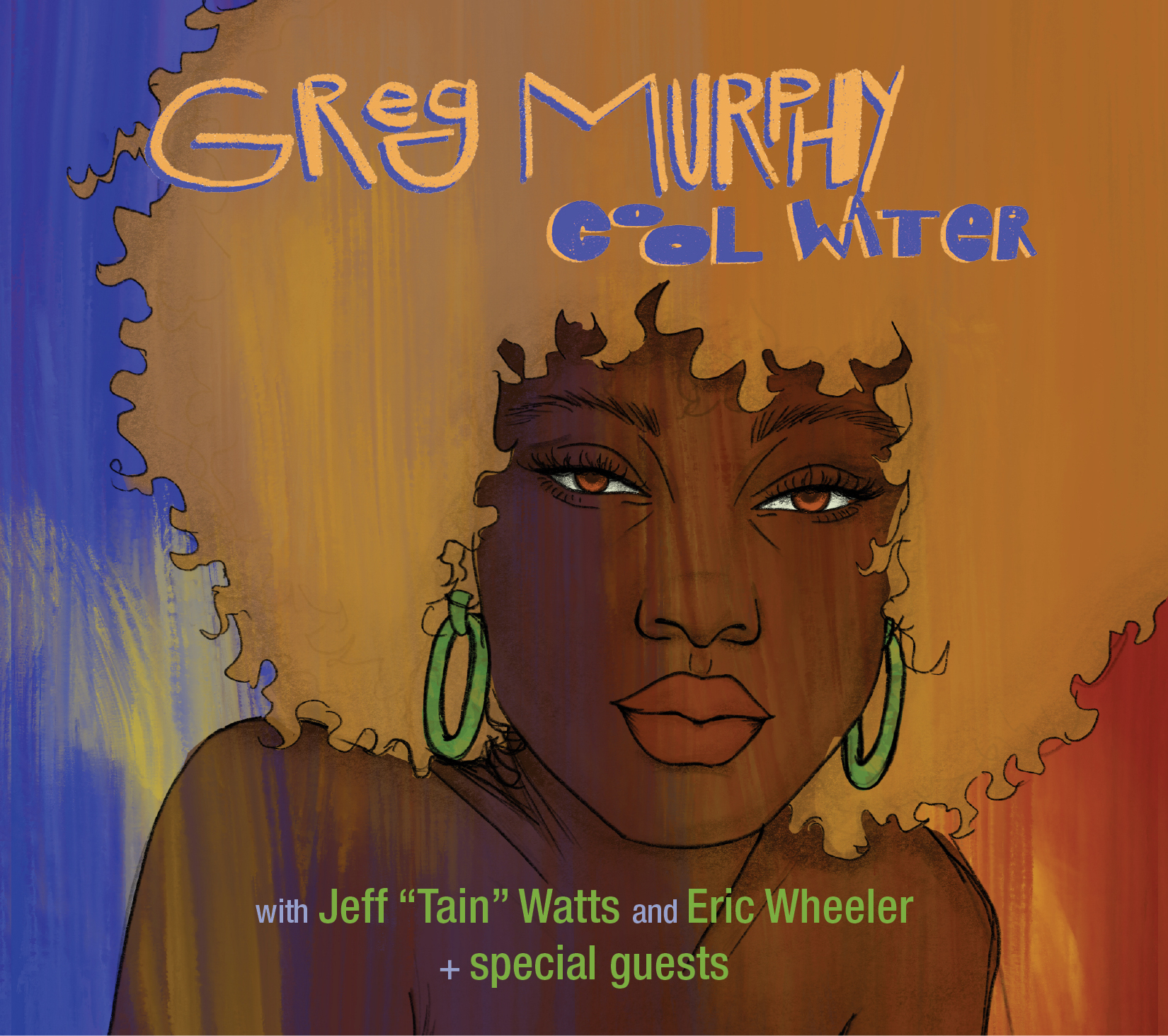
22 weeks total
18 weeks on chart
11 weeks top 20
5 weeks top 10
Peak #6
Click here to read the full article!

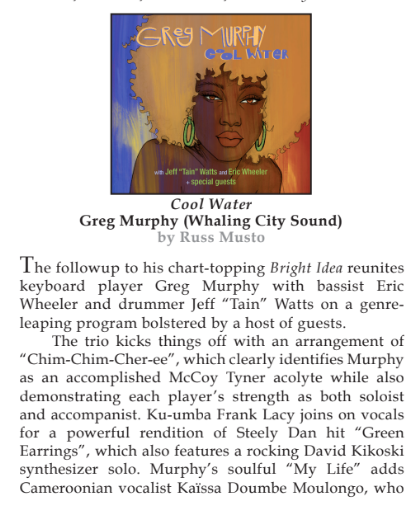
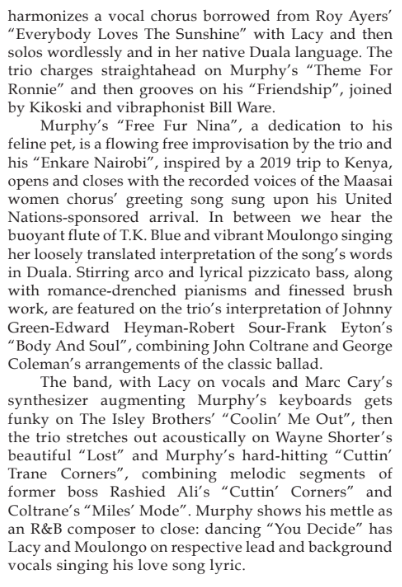

“Cool Water is a jazz album partly inspired by music artist Greg Murphy’s trip to Africa; the title refers to the Nairobi River which flows through the capital of Kenya. Another prominent influence on the ambitious collection is the joy of exploration and discovery with friends. The music is a celebration of camaraderie, resonating with optimism and wonder. Highly recommended! The tracks are “Chim Chim Cher-ee”, “Green Earrings”, “My Life”, “Theme For Ronnie”, “Friendship”, “Free Fur Nina”, “Enkare Nairobi”, “Body And Soul”, “Coolin’ Me Out”, “Lost”, “Cuttin’ Trane’s Corners”, and “You Decide”.”
– James A. Cox
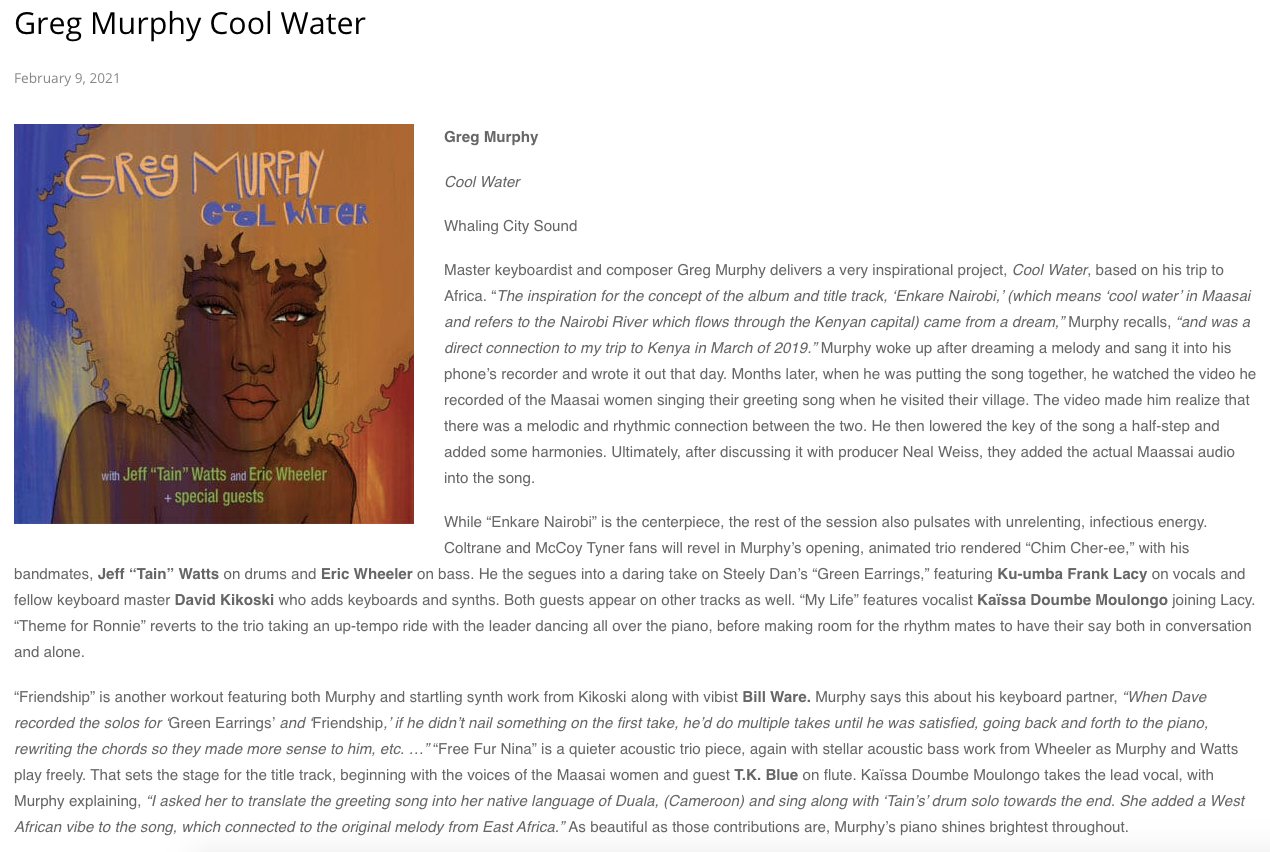

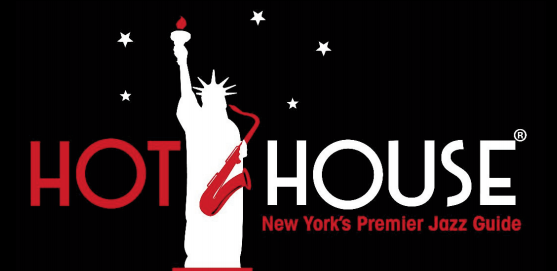

click here for the full review
Greg Murphy’s “Bright Idea” #1 on JazzWeek chart
+48 Biggest Gainer +15 Most Added
Greg Murphy Liner Notes for Bright Idea
By
Lofton A Emenari, III
The world of jazz, despite legends of gloried lore, is fraught with contradictions, dichotomies and some of the most unlikely stories that boggle the imagination–untold tales lying just beneath the maelstrom of mainstream media, tucked away as a sanguine keepsake measured only in the hearts and minds of those involved. Stories of heartbreak. Stories of triumph.
Pianist Greg Murphy’s story, his all-too-human story, is made of that same kind of tangible heroic fabric–from wandering in the valley low only to gain a celebratory emergence–a joyful spiritual attainment over and above a craggy, pit-laden adversity.
I met an enthusiastic Murphy in the summer of 1980 one afternoon at my downtown Chicago loft venue for jazz, Aziza Artist Space. The set that day was led by the late saxophonist, Fred Anderson. Recommended by his friend and bassist Tyler Mitchell, Murphy was on the gig. Showing a promise that would only be realized years down the road, Murphy exhibited an indelible pianistic presence. His bluesy orchestral swing-filled stylistic technique crackled with an exuberant intensity far beyond his youthful age.
Upon a chance encounter with Marsalis patriarch Ellis Marsalis in Chicago, as fate would have it, soon Murphy was headed for New Orleans. Duly noticing the young pianist’s potential, Murphy was Crescent City bound–this at the height of the Young Lions movement of the early 80s. Recalling their initial meeting, “Ellis Marsalis came to my house, gave me a free piano lesson and subsequently suggested that I apply for a National Endowment for the Arts Jazz Study Grant.”
After several months of study with Marsalis and a couple years of performances under his belt, Murphy felt it was time for his New York debut. Finding himself in the hardball, thick pace of the jazz capital of the world, he hit the ground running–gigging and sitting in with a gaggle of who’s who musicians, from leaders to sidemen.
The move was not without its life-altering challenges, however. Murphy, consequently swept up in the netherworld of New York’s swirling, turbulent and unforgiving drug subculture, found himself with a nagging addiction, homeless and scrounging for gigs. After years of struggle and hitting ‘rock bottom’, the pianist sought help not only to bring the desperately needed healing of sobriety but also to resurrect a once budding career, the precipice of which was well within reach.
“The music scene and the fast paced lifestyle in New York kicked a lot of musicians’ asses and sent them back home with their tails between their legs,” Murphy recalls. “I swore that would never happen to me, but it did, and I went back to Chicago wounded. When I returned to Harlem I started to get my act together and began focusing on life, music and recovery.”
Jazz mythos is replete with numerous fringe characters who should have made it to the top echelons, yet for some reason faltered, never to be heard from again. There are countless tales of brilliance, yet their shooting stars ebb and wane, fading into an on-waiting obscurity. Pianist Greg Murphy’s everyday toil and sweat equity is the stuff legends are made of, beating incredible odds against an ofttimes societal indifference when it comes to the needs of those pushed to the castigated margins of American society.
As an adept pianist of universal appeal, Murphy has done it all–from the backroom bar jam sessions, to accompanying a litany of singers, to countless man hours of solo piano gigs in hotels and eateries, to mounting outdoor festival stages with some of the famous and not-so-famous, Murphy’s resume is incredibly outstanding by any measure. Yet it was his association with multidirectional drummer, Rashied Ali, that helped verify his protean credentials as a solid accompanist and soloist. Having met the iconic drummer previously in Chicago, before arriving in New York, was something predestined. Little did he know that he’d become Ali’s pianist of choice. Murphy recalls, “Working with Rashied helped me tremendously as a musician and as a person. He was a father figure and best friend at the same time and we used to hang out a lot on and off the road. When we were on the bandstand, he was a leader both rhythmically and spiritually. He was the most complimentary musician I’ve ever played with.”
Murphy’s 20 year plus tenure with Rashied Ali historically plants him firmly in the branches of the John Coltrane lineage. Through the fruition of the Ali/Trane tree, Murphy would achieve a wider acclaim of peer recognition, particularly with one-time Coltrane bassist Reggie Workman. It turns out that Mr. Workman was originally sought out by the pianist for this recording. Talking with Workman over a period of time, Murphy said, “Reggie’s always working and it was just too difficult for us to find time to get together.” And while the session with Workman (who proposed the June 19th recording date) didn’t work out, Murphy kept his head above water and sought out his long time bassist Eric Wheeler.
The natural choice of in-demand bassist Eric Wheeler was a no-brainer. “Eric’s my favorite bass player and I was happy he was available for the date,” Greg says. “He’s got a huge sound, intricate articulation and a tremendous improvisational conception.”
Key to the overall emotional soundscape and rhythmic projection of this recording is one of the most important drummers of his generation, Jeff “Tain” Watts. His conversant dexterity and unexpectant dropping of syncopation, undergirds flavorful nuances of color and timbre, making Tain not only a drummer for all seasons but an unfailing rhythm mate to be counted on always. “I met Tain after he first started playing with Wynton in the mid-eighties,” Murphy remembers. “I always knew he was a bad cat but didn’t realize the depth of his power, subtlety and musicianship until I played with him. He’s truly one of the great drummers.”
Elemental to any jazz trio session is the profound yet subliminal reciprocity of the players. Underpinned by the blues and swing, so vital to the panoramic musical narrative, Murphy, along with Eric Wheeler and Jeff “Tain” Watts, pour into each tune every drop of sweat and blood they have. Furthermore, the band keeps the music contemporary and timeless, calling attention to themes reflected in the songs, Juneteenth Notes, Earthlings and Happy. These three tunes in and of themselves set the tone.
Also in the program is the newly discovered Coltrane composition, Untitled Original 11383, a twelve-bar blues that Murphy and crew had the foresight to do a fresh cover of. Greg recalls, “I had planned to record a different Bb blues (Theme for Ronnie–written for the late great alto saxophonist, Ron Sutton, Jr.) but after listening to Trane’s tune at the suggestion of bass player, Dezron Douglas two days before the session, I decided to transcribe it and take a shot at it.”
Juneteenth Notes, a showcase for Tain’s telepathic rumbling interplay, pays tribute to the African American holiday recognizing newly freed black slaves of Texas, months following Lincoln’s signing of the Emancipation Proclamation. “Many Americans aren’t too familiar with Juneteenth and what it means historically,”says Murphy in regards to the reconciliation of the nation and its sad and unfortunate legacy of slavery. The territory of Texas got the news of freedom later than most of the southern states on June 19th, hence the title Juneteenth.
Of the most memorable pieces is the trio’s rendition of saxophonist Joe Ford’s Earthlings. Murphy recorded the tune as a solo piano vehicle on his Blues for Miles album (JazzIntensity 2016). Surprisingly enough, Jeff “Tain” Watts was the drummer on the original Larry Willis recording, Heavy Blue (Steeplechase 1994). “I heard it on the radio a lot in the mid 90s and loved it,” says Murphy. “Joe Ford’s original version is in 4/4 but Larry needed a ballad so they adapted it to 3/4. It sounds great either way.” This solid trio version should get just as much media attention if not more, as Murphy and crew deliver a classic performance.
Always playing with a burning fire beneath his fingers, Bright Idea, Greg Murphy’s second Whaling City Sound project and fifth overall is perhaps his strongest recording as a leader. Swinging with the best of pianists today, the hunger and desire of Murphy’s fleet, yet muscular edginess and his valiant triumph in life and music lead us to believe that Bright Idea is destined to become a valued aesthetic document in the pantheon of jazz piano recordings.
###
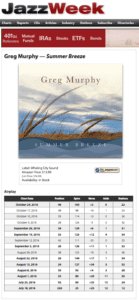 http://www.jazzweek.com/releases/2016/07/greg-murphy-summer-breeze-whaling-city-sound/
http://www.jazzweek.com/releases/2016/07/greg-murphy-summer-breeze-whaling-city-sound/
MBR Review:
To view Summer Breeze’s press release, click here.
Summer Breeze
LINER NOTES by Bill Milkowski
A prodigious talent whose keyboard pyrotechnics have ignited the bandstands of such shamanistic figures as Rashied Ali and Tisziji Muñoz, veteran pianist-composer Greg Murphy has been a firebrand on the scene since moving to New York in 1987. On his fourth outing as a leader, the Chicago native showcases a myriad of musical expressions besides the heightened, McCoy-inspired approach that has been his calling card for decades.
With a core group consisting of fiery trumpeter Josh Evans, Dee Dee Bridgewater bassist Eric Wheeler and sensational young drummer Kush Abadey — augmented on different tracks by stellar improvisers Jay Rodriguez on soprano sax, Eric Wyatt and Scott Robert Avidon on tenor saxes, Corey Wilcox on trombone, Raphael Cruz on percussion and Malou Beauvoir on vocals — Murphy explores some appealing pop material on his “A Reason to Smile” and a cover of Seals & Crofts’ ‘70s hit “Summer Breeze” while also digging into Afro-Cuban grooves (“Suspended Time”), burning hard bop (“Cedar Salad”), free jazz (“Tsk”) and a swinging blues (Sonny Rollins’ “Solid”) on his Whaling City Sound debut.
“I was playing in pop bands when I got started in Chicago, before I started getting deeply into jazz,” says the pianist-composer, who got a grant to study with Ellis Marsalis in New Orleans during the mid ‘80s. “In fact, I wrote ‘A Reason to Smile’ 30 years ago when I was in this group called Lightning Flash Thunder Roar. And I got Malou to help me with the lyrics on this new version of that tune.” Beauvoir delivers supremely soulful vocals on that mellow offering as well as on a re-imaginging of Duke Ellington’s “Sophisticated Lady,” which morphs into a 6/4 Afro-Cuban feel midway through. Evans shades Malou’s alluring vocals on muted trumpet throughout their inventive take on this classic bit of Ellingtonia while Cruz provides the appropriate percussive colors to give it that Latin tinge.
“Cedar Salad” is Murphy’s homage to the late, great pianist-composer Cedar Walton. “I actually ran into Cedar in the Village one day and gave him a copy of this piece I had written for him,” the pianist recalls. “My thinking behind this was to emulate the way that Cedar went into the half-step harmonic movement, from major to minor, on his classic tunes ‘Bolivia’ and ‘Ugetsu.’ In this case, it goes from the Bflat minor to the Bmajor to the F#.” Trumpeter Evans and saxophonist Wyatt provide a Messengers-like feel on the front line of this jaunty swinger while Murphy reveals his fluent hard bop chops on his impassioned solo here.
Wyatt, a longtime collaborator of Murphy’s who also happens to be the godson of Sonny Rollins, plays some robust tenor sax on the bluesy Newk vehicle “Solid” while trumpeter Evans is prominently featured on a faithful reading of the hauntingly beautiful Wayne Shorter composition “Fall,” which also has the pianist freely exploring the harmonic fabric of that evocative piece. The core trio of Murphy, Wheeler and Abadey turns in a straightforward reading of Miles Davis’ “Solar,” which is underscored by the young drummer’s briskly swinging touch on the kit. Abadey also provides some gentle brushwork and tasty cymbal colorations on Avidon’s gentle “Leo’s Lullaby” and he fires up Murphy’s modal burner “Expectations,” which features some rapid-fire exchanges of eights with the drummer, trumpeter Evans, soprano saxophonist Rodriguez and tenorist Avidon at the tag. And the drummer’s keen instincts adds to the conversation on the purely improvisational “Tsk.”
“Kush is a phenomenal young cat,” says Murphy. “He really plays beyond his years. He’s played with Wallace Roney and recently he was on the road with Ravi Coltrane. I’ve seen him down at Small’s a lot and he always sounds great. Yeah, he’s a pretty busy cat these days.”
Murphy unleashes with McCoy-esque abandon on his two uptempo workouts, “Expectations” and “No One in Particular,” and he delivers a real-deal son montuno feel on his Afro-Cuban groover “Suspended Time,” which features a pulsating bass solo from Wheeler along with an extended drum flurry at the end by Abadey.
All of Murphy’s experiences — his 20-year tenure in New York with Rashied Ali, his intensive study in New Orleans with Ellis Marsalis, his pop-funk days in Chicago, along with his Latin jazz work in Raphael Cruz’s band — come to bear on Summer Breeze, his most fully self-realized outing to date. — Bill Milkowski
Bill Milkowski is a regular contributor to Down Beat and Jazziz magazines. He is also the author of “JACO: The Extraordinary and Tragic Life of Jaco Pastorius” (Backbeat Books) and the recipient of the 2015 Bruce Lundvall Award presented by the Montreal Jazz Festival.
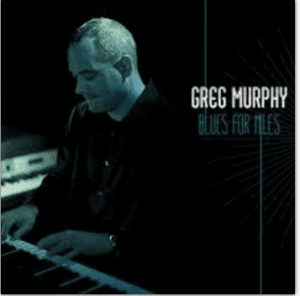
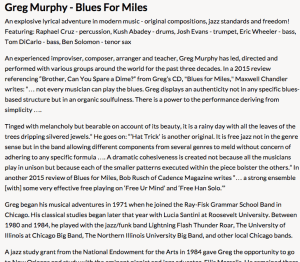


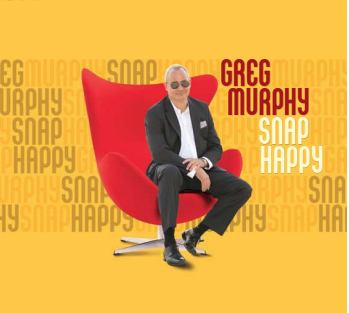




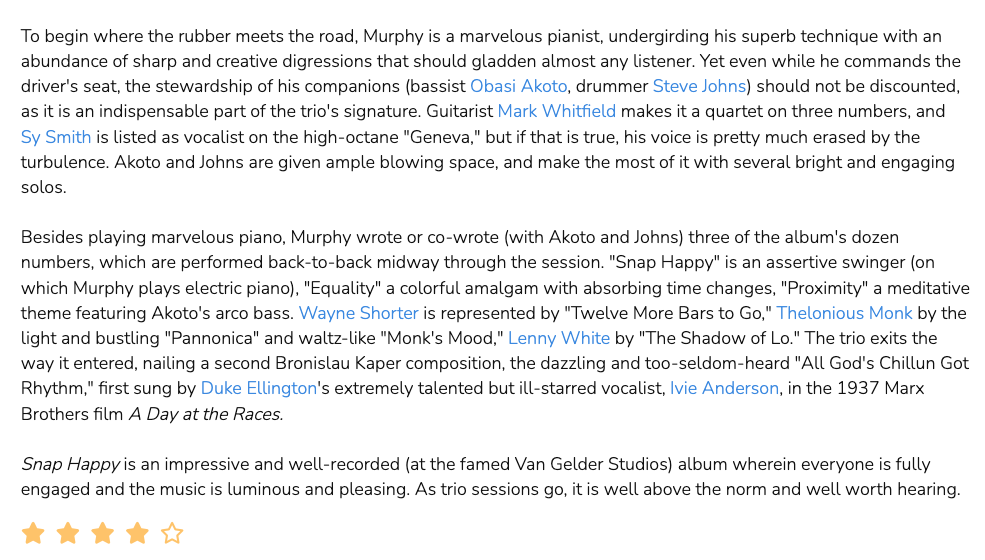



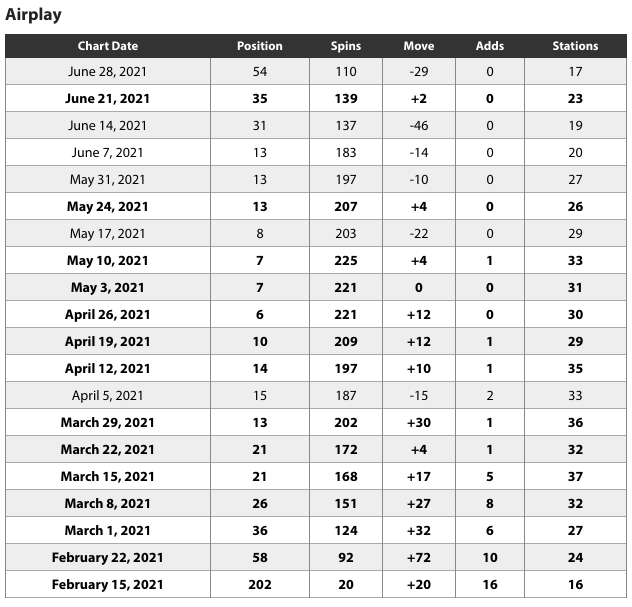

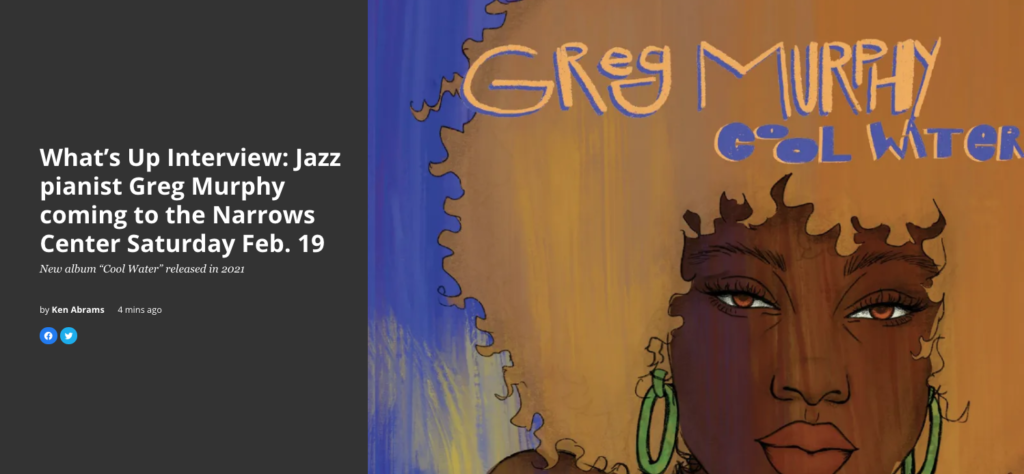
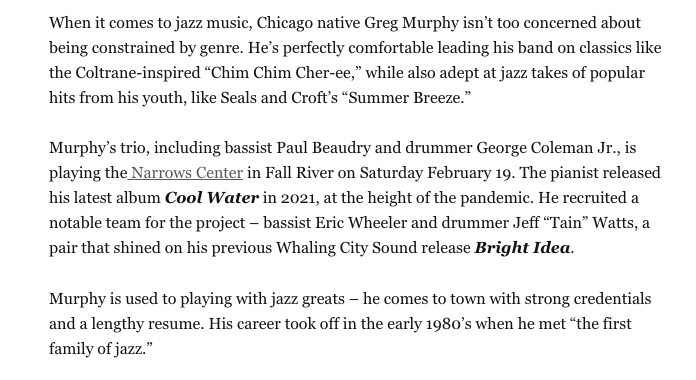
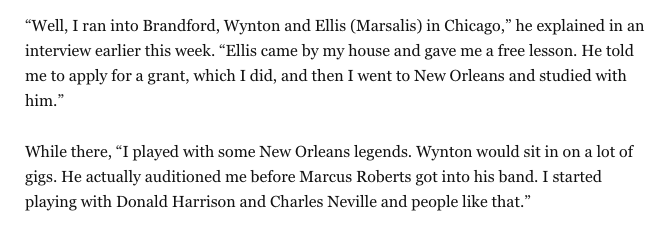


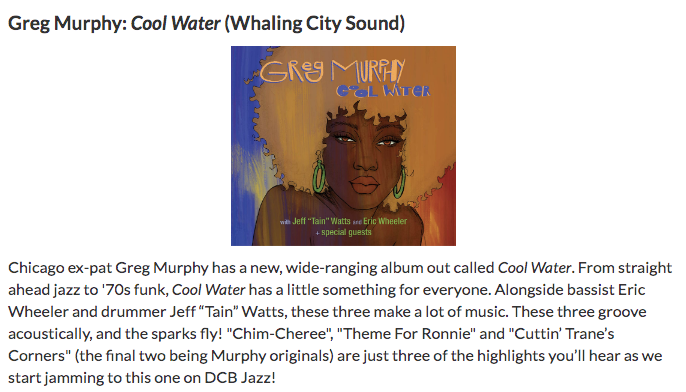


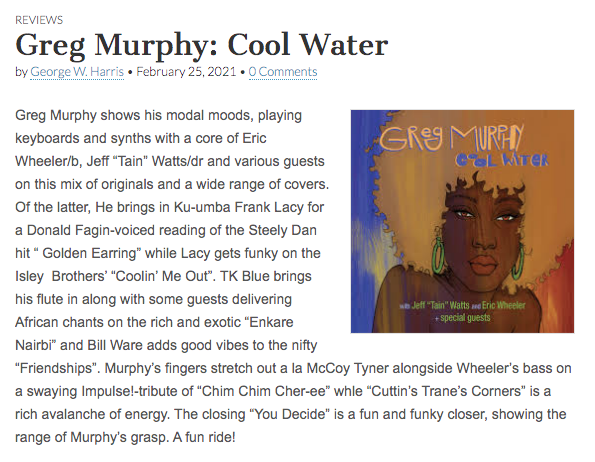

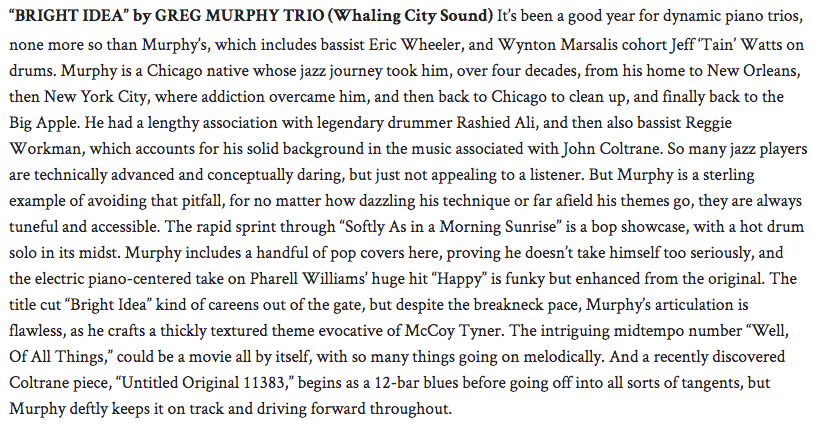
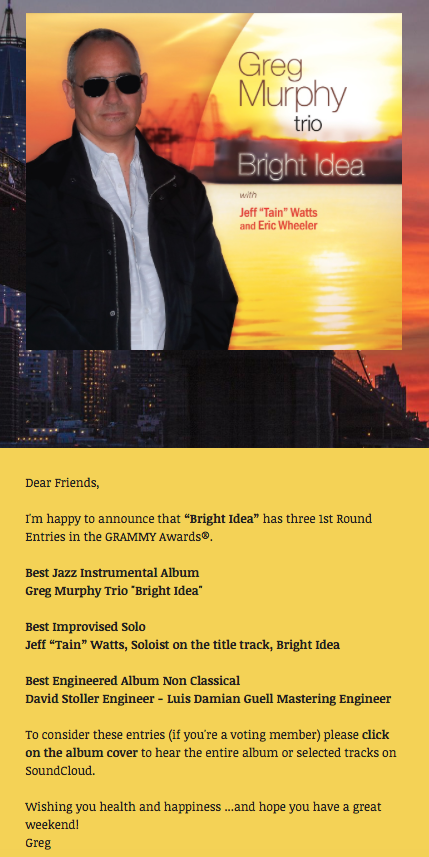

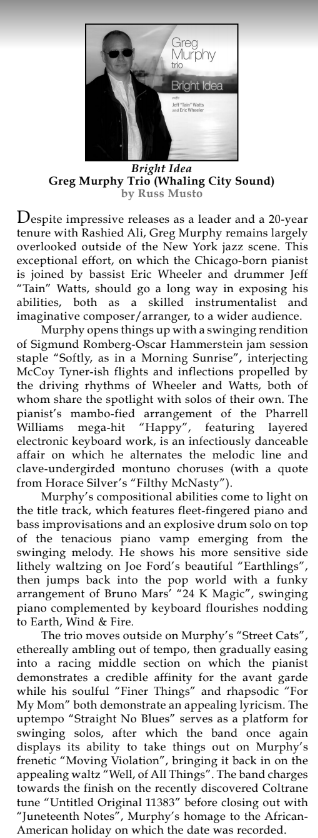

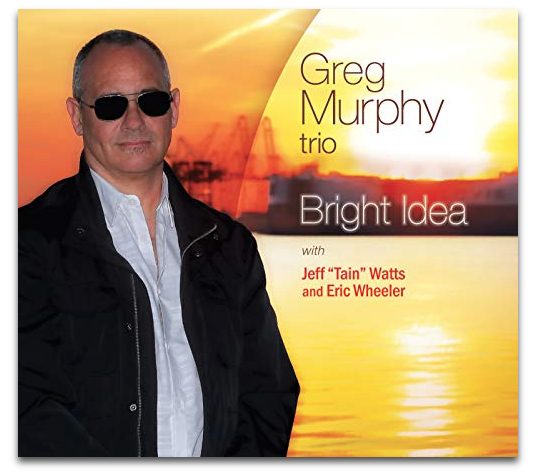



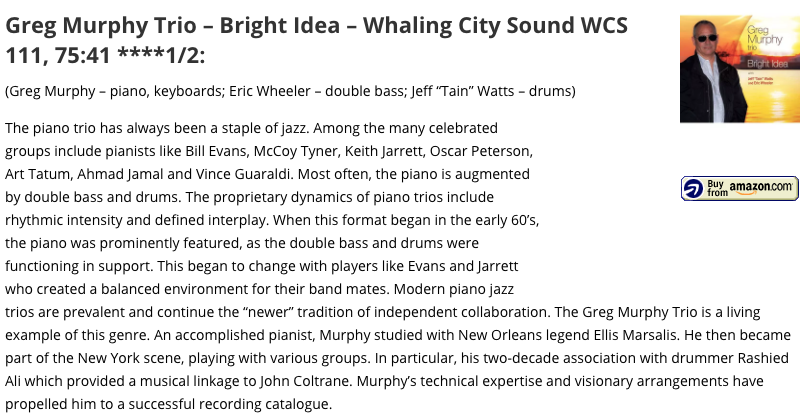

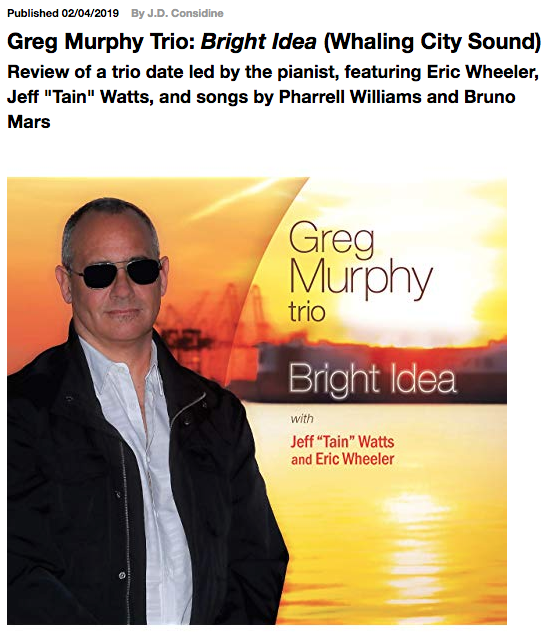
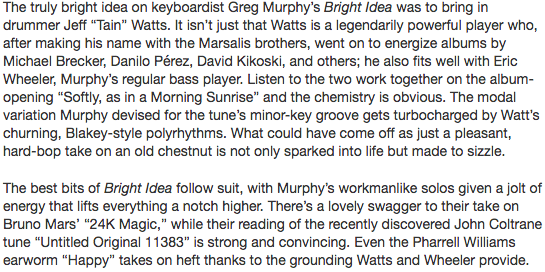





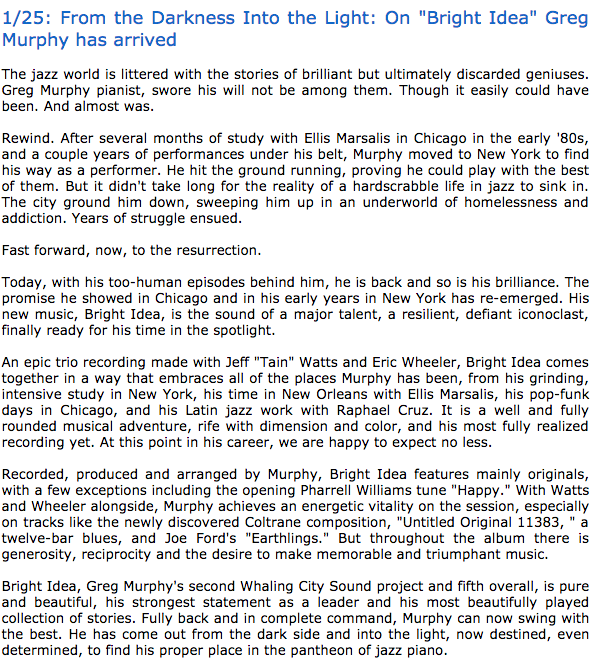
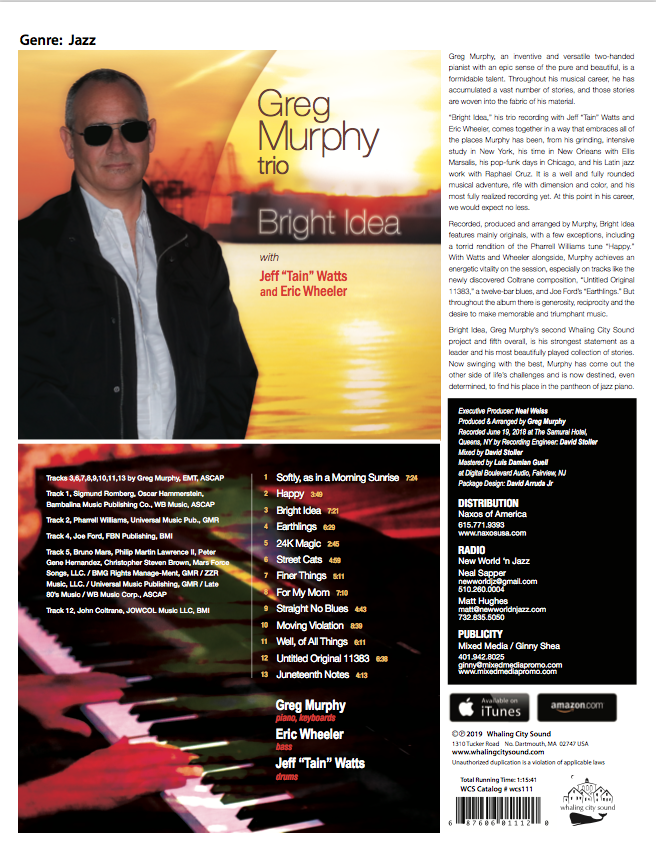
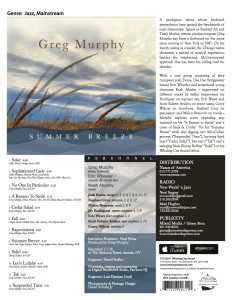
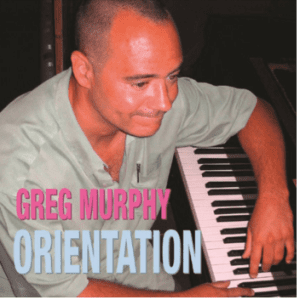

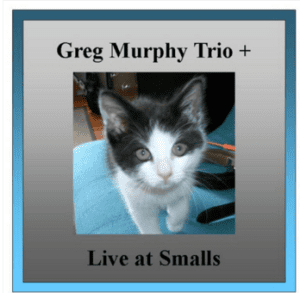 ‘
‘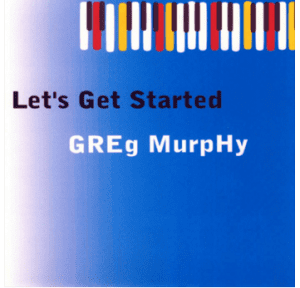
 Music industry consultant and publicist Ginny Shea has garnered international exposure for her clients through radio and video promotion, print media, and her vast industry network.
Music industry consultant and publicist Ginny Shea has garnered international exposure for her clients through radio and video promotion, print media, and her vast industry network.